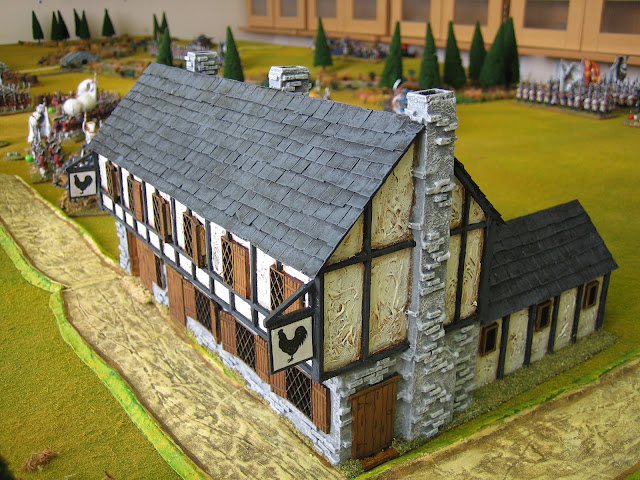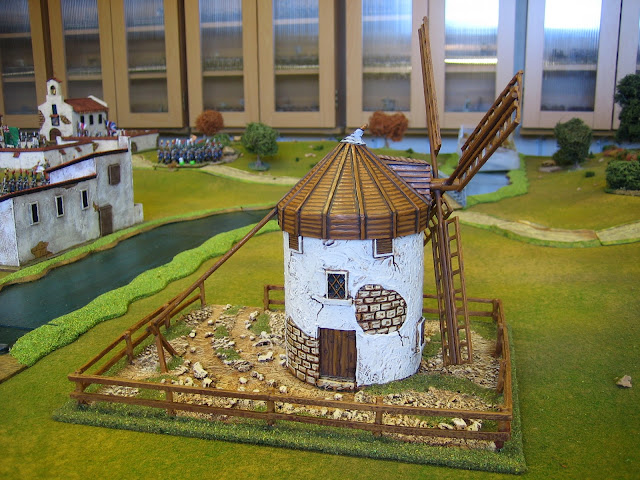When I want to make an MDF building less 'smooth' I like to use a thin coat that sticks to the surface without soaking in and that, once dry, has a zero chance of being chipped off.
The best stuff I have found is heavy body artists acrylic paint (usually out of a tube) applied with a fine hog hair brush. The effects are good because you apply like paint and it sticks to the surface like the proverbial. The acrylic has very little shrinkage: the depth of paint at the end is pretty much how thick you applied it wet, so you can put it on in a pretty thin coat. I don't care about the colour the acrylic is because I always paint the whole building after applying it anyway. I generally do the plaster work, with emulsion paint, ink washed, then dry brushed.
You can also use it, prior to doing the main 'plastering' to create small areas of brickwork rather than stick card bricks to the surface (which I did until realising acrylic bricks were quicker and easier). When it comes to applying the rest of the surface you just bring the 'plastering paint' up to the edge of the brickwork to give it a false edge around the brickwork, giving the impression of the surface plaster having fallen off.
Here are some scratch built MDF buildings and cardboard windmill made like this. Hopefully the first picture will show how little thickness is required to get a roughed up effect. Anyway, it's one way of doing it.





